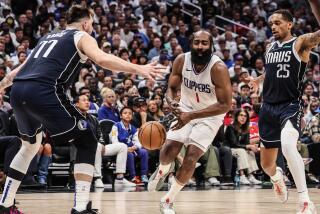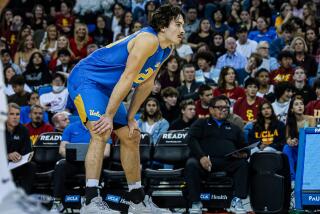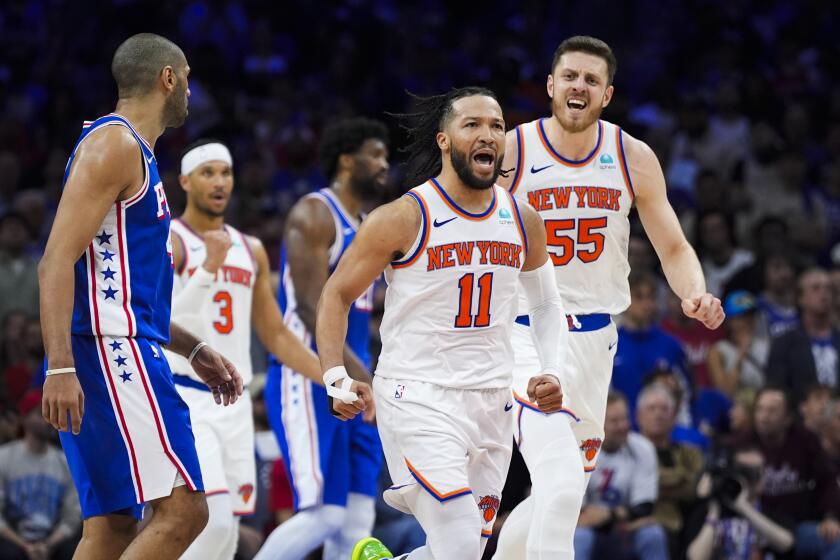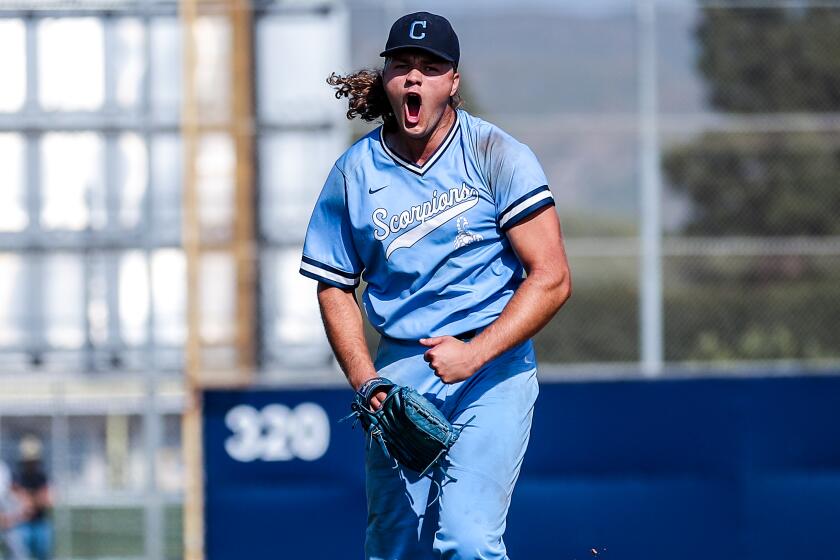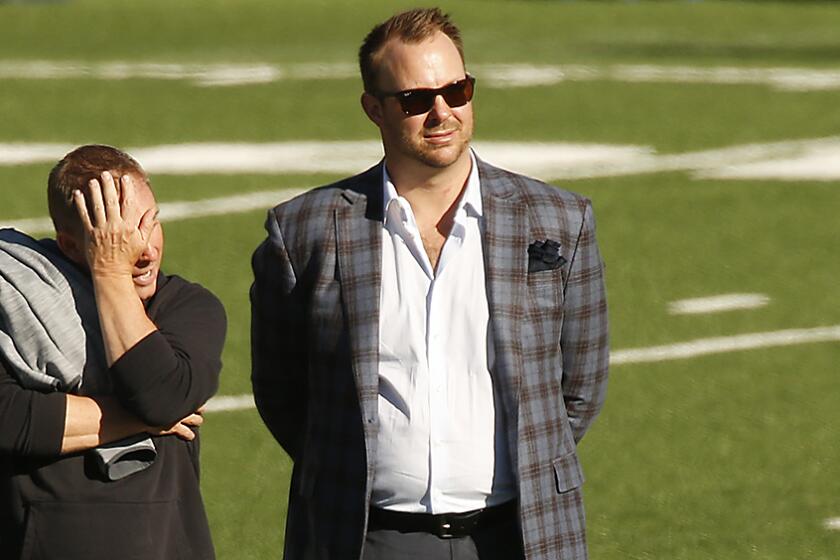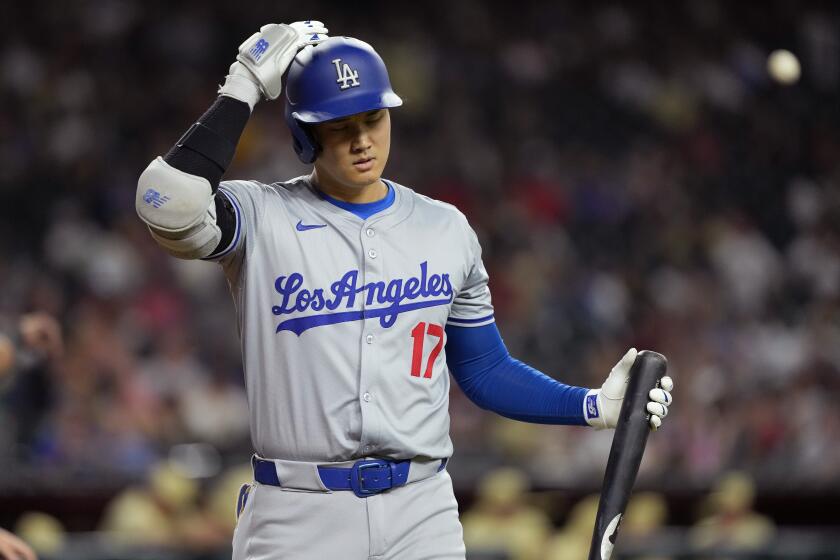Now He Can Determine the Going Rate
From the moment he stood in the tunnel before the U.S. Open final and lined up behind Andre Agassi with a big grin on his face, until the moment he hit a final, winning volley, when he was limp, drained of energy and emotion, able only to hold on to Agassi in grateful appreciation, Pete Sampras owned this day.
“This takes the cake,” Sampras said.
Sampras has never been one for padding his sentences with extra emotion but this time the paucity of words came from utter physical and emotional exhaustion.
Sampras beat Andre Agassi, 6-3, 6-4, 5-7, 6-4, to win his fifth U.S. Open and 14th Grand Slam title. He was given a moment or two to enjoy, then had to think out loud about his future.
“To beat a rival like Andre in a major tournament at the U.S. Open, a storybook ending, it might be nice to stop,” Sampras said.
“I still want to compete, you know? I still love to play. Right now it’s really hard to talk about. My head’s spinning. The next couple of months I’ll reflect on it and see where I’m at.”
This sounds like a man who might now be ready to retire, on his own terms, in his own way. This was a man who needed an intravenous boost of fluids after the match, who spoke in the wearied tone of a man who had been pushed to his physical limits. Because of rain, Sampras had played five matches in seven days, all of them filled with huge emotional as well as physical investment, and now Sampras had nothing left.
This was a privileged day, for the competitors, for the fans, for all in the stadium who were able to watch two of America’s greatest tennis champions play for the fifth time in a Grand Slam final.
Agassi was seeded No. 6, Sampras No. 17. Whoever won was going to be the oldest Open champion since 1970, when Ken Rosewall, 35, won.
The day began with an emotional singing of “America” by Art Garfunkel and his son, James, a haunting version of quivering high notes sung while the tattered flag that survived the World Trade Center attacks blew strongly in the wind above Arthur Ashe Stadium.
Sampras and Agassi stood together again, two men who have grown up together as opposites and rivals who appreciate having each other.
These two men began their Grand Slam rivalry when they were children, at the 1990 U.S. Open.
Sampras was 19, scrawny and loose-limbed and oblivious to his own great talent and the history he was starting to make. Agassi was 20, as interested in being trendy and hip and having cool clothes and long hair as he was to making a tennis legacy.
They played in the final. Sampras won, 6-4, 6-3, 6-2, a thorough thumping. Afterward Agassi said that Sampras had served too well, everything on the lines and 120 mph.
It was that way Sunday. Sampras had 33 aces. Everything on the lines, 120 mph, Agassi lunging and punching.
This was so unexpected from Sampras. He was a woebegone figure two months ago at Wimbledon, a second-round loser in another tournament he had owned, an old-looking man with his head buried in a towel out on Court 2, an insulting place in Sampras’ mind for a champion to have been exiled.
And more than ever, Sampras heard the sad questions.
Why didn’t he walk off the stage, leave it to the youngsters? Why didn’t he understand that his moment of triumph, the 2000 Wimbledon when he broke the record, won his 13th major and hugged his father Gus--who had never celebrated a victory at a Grand Slam event with his son--could not be topped and should not have been tarnished with all the losses that followed?
It was time, wasn’t it? Thanks for the effort and historical greatness, Pete, and go away. Sampras heard this. He kept quiet about it, but he heard it.
“The one thing I promised myself, even though I was struggling and hearing this and that, was I want to stop on my own terms,” Sampras said. “I deserve to stop on my own terms. I’ve done too much in the game to hear the negative things and start believing it.”
And Sampras didn’t say “I told you so,” even though he could have.
If he plays again next year, if he says he wants to win an eighth Wimbledon or feels motivated to defend his Open title, then that’s what he should do.
If the scene at the net in the dusk Sunday evening--hugging Agassi, his foil, his rival, the man he calls “the best I ever played, no disrespect to anybody else”--if this was Sampras’ final Grand Slam moment, then it was the best. By the best.
Diane Pucin can be reached at diane.pucin@latimes.com.
More to Read
Get our high school sports newsletter
Prep Rally is devoted to the SoCal high school sports experience, bringing you scores, stories and a behind-the-scenes look at what makes prep sports so popular.
You may occasionally receive promotional content from the Los Angeles Times.
